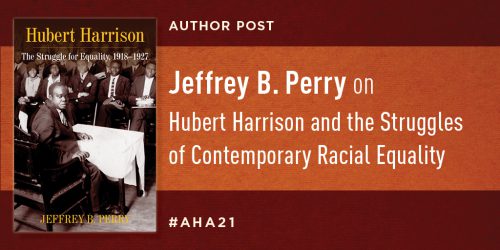Paull Pillar on the Legacy of Propaganda and the Iraq War
“When an administration sets out to manipulate truth and falsehood as shamelessly as the promoters of the Iraq War did, the damage is not limited only to adoption of whatever policies the manipulators are promoting. The substantial lingering misconceptions among the public make for broader damage. The persistent mistaken beliefs among more than a third of Americans about Iraq and al-Qaeda greatly inhibit public understanding about terrorism, about the Middle East, and about how their own government has operated.” — Paul Pillar
In The Iraq War and the Power of Propaganda a recent post on his blog for The National Interest, Paul Pillar reminds readers of how the administration of George W. Bush manipulated intelligence to sell the idea of an alliance between Iraq and al-Qaeda. As Pillar writes, “The postulation of such an alliance also contradicted judgments of the U.S. intelligence community and other experts inside and outside government.” Pillar goes on to explain that “The belief was cultivated by repeatedly uttering ‘Iraq,’ ‘9/11’ and ‘war on terror’ in the same breath. The cultivation was so successful that by the peak of the war-promoters’ sales campaign in late 2002 a majority of Americans believed that Saddam Hussein not only was allied with al-Qaeda but also had been directly involved in the 9/11 attack.”
The falsity of the Bush administrations claims are now widely acknowledged but as Paul Pillar demonstrates, a recent poll indicates that, remarkably, a significant minority continues to believe that Iraq and Saddam Hussein had a role in the September 11 attacks. In the conclusion to his post, Pillar explores some of the implications of the continued success of the Bush administration’s “sales campaign” for the war in Iraq:
A couple of implications follow about the present. One is that when an administration sets out to manipulate truth and falsehood as shamelessly as the promoters of the Iraq War did, the damage is not limited only to adoption of whatever policies the manipulators are promoting. The substantial lingering misconceptions among the public make for broader damage. The persistent mistaken beliefs among more than a third of Americans about Iraq and al-Qaeda greatly inhibit public understanding about terrorism, about the Middle East, and about how their own government has operated.
The second implication is that the government of the day, if applying enough single-minded determination, has tremendous power to sway the populace and generate support for new initiatives. This power could be used for good and not only for ill. Just imagine, for example, if the kind of concerted sales campaign that made it possible to do something as extraordinary as launching a major offensive war were to be applied to an all-out U.S. effort to resolve the conflict between Israel and the Palestinians. Such an effort still would run up against resistance from a strong lobby, but unlike with the Iraq War, selling the effort would not require manufacturing any issues or manipulating any falsehoods. Lack of resolution of the conflict really does hurt U.S. interests, and one could explain that while sticking totally to the truth.




